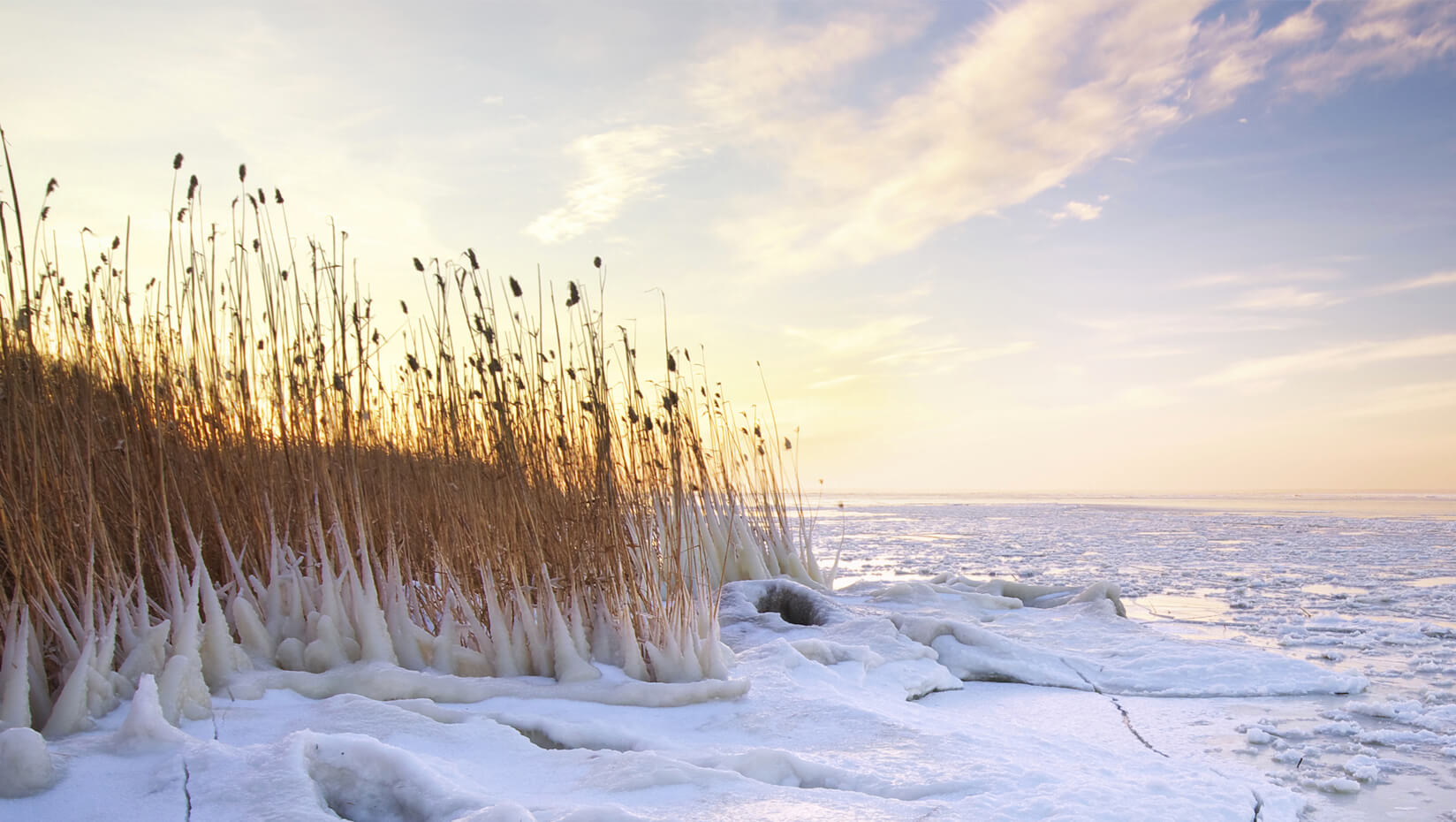
An early spring for Maine lakes
Researchers at the University of Maine say an expected increase in the frequency and strength of El Niño events — unusual warming of the tropical Pacific Ocean that causes worldwide fluctuations in temperature and rainfall — may result in milder winters in New England.
Though good for residents longing for warm weather, the shift could be detrimental to lakes in Maine.
Mussie T. Beyene, a civil and environmental engineering graduate student, has been studying spring ice-out dates in Maine lakes and their relationship with preceding winter weather-climate variability.
The lengthening of the ice-free period in lakes favors increased algal growth and declining lake water quality, warming water temperatures that have the potential to cause alterations in aquatic biodiversity and shortening of the ice-fishing period and other traditional winter lake activities.
An important predictor for spring ice-out dates is the accumulated freezing and melting degree-days — the sum of temperatures below and above the 32 F temperature threshold in January and February.
Winter temperatures show a systematic link with tropical Pacific Oceanic climate referred to as El Niño-Southern Oscillation, says Beyene. “El Niño is predictable on season and longer time leads, and the study offers a scientific basis for season-ahead ice-out forecasts in Maine lakes.”
“Previous studies attribute the recent pattern of New England lakes towards earlier ice-out dates to spring temperatures,” says Shaleen Jain, associate professor of civil and environmental engineering. “However, our results establish that winter temperatures and climate conditions also influence the timing of ice-out dates in Maine lakes.”
The researchers’ study showed variability in winter temperatures can produce shifts in the timing of ice-out dates of Maine lakes, including years when lakes do not attain a complete ice cover.
Lake ice can serve as an important link between winter climate, aquatic ecosystems and society, says Jain, who is also a Cooperating Associate Professor at the Climate Change Institute and the School of Policy and International affairs.
Climate-related linkages identified in this study have relevance toward a broader understanding of the state of Maine lakes. Previous studies have shown that changes in the lake ice season can have cascading effects on the physical, chemical and biological processes of lakes.
Beyene became interested in water sustainability issues while working as a water resource engineer in Eritrea, Africa.
“I have seen firsthand that the current lake and reservoir management policies seldom work,” he says. “A major reason for their failure is that the role of climate variability and change on water resources is not properly understood and/or incorporated in the decision-making process. Careful scientific analyses and pluralistic management approaches can greatly enhance water resources management.”
“My current research project at UMaine seeks to offer pinpointed information regarding the levels of warming and other anthropogenic changes that may cause severe declines in lake water quality,” says Beyene.
The study utilized historical records of eight lakes and six benchmarked meteorological stations in Maine between 1950–2010.
The paper, “Wintertime weather-climate variability and its links to early spring ice-out in Maine Lakes,” was published in the journal Limnology and Oceanography.
Contact: Amanda Clark, 207.581.3721
